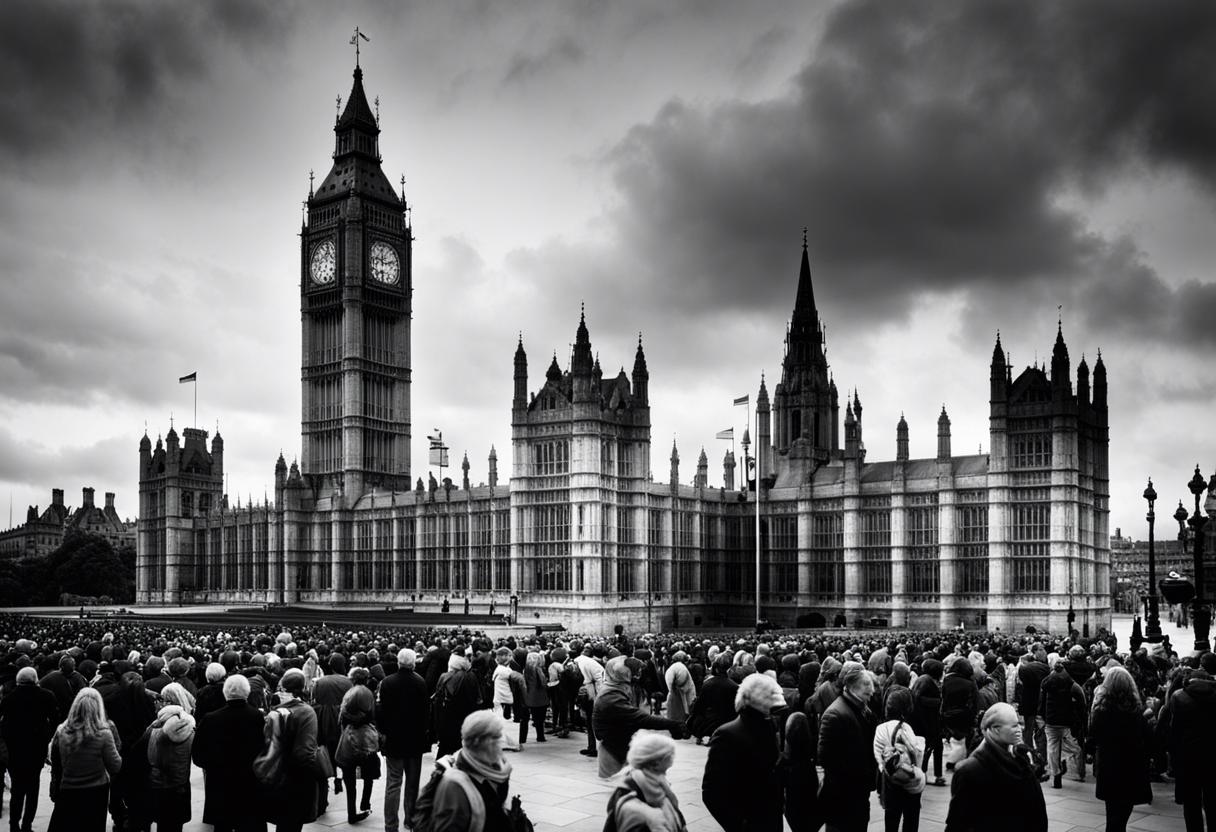As the UK anticipates the warmth of summer, Prime Minister Rishi Sunak will be striving for a cool atmosphere within his disgruntled Conservative Party. The steadiness of his role is largely subject to the losses his party might face in the upcoming local elections on May 2nd, a prospect that causes dread amongst the Tory councillors, who anticipate a potential drop by half.
However, additional trepidations lurk for Sunak in the form of the simultaneous mayoral elections. Recent poll results from Redfield & Wilton indicate a plummeting popularity of the notable Tory mayor of the West Midlands, including Birmingham, Andy Street, who is a significant 14 points behind his Labour opponent. Owing to the intense opposition and unrest amongst voters towards the Tory chaos in Westminster, Street resorted to erasing Conservative Party branding from his campaign this past week. As the uncertainty intensifies, alarm spreads amongst the Conservatives, under the threat that Ben Houchen, the Tory mayor of the area surrounding Middlesbrough, Tees Valley, may also be under threat.
The Tories in Westminster infer that a defeat for any of these experienced mayors, situated in regions vital to Tory electoral success, could dispel Sunak’s aspiration for calm waters over the summer. If both face losses, a challenge against Sunak by Tory MPs via a no-confidence motion may become inevitable.
Tory Peer and Ex-MP, Lord Robert Hayward, renowned for his precise electoral forecasts, asserts that only a “vocal minority” of MPs desire Sunak’s removal. He insists, however, that regardless of the election outcomes, the May 2nd elections would inevitably incite some to push for a new prime minister prior to the anticipated UK general election later this year.
According to Hayward, only a major international crisis, such as a broader conflict in the Middle East, could potentially pacify the agitators. In such a situation, a surge in understanding might suggest that challenging a prime minister amidst a global crisis would be improper.
On the 2nd of May, over 2,600 council seats across 107 councils in England will be contested, with a surplus of posts in large metropolises like London and Newcastle. Sadiq Khan, Labour’s London mayor, will face off against Susan Hall from the Conservative party in one of the more than 10 mayoral elections. However, insiders from the Conservative party anticipate that Hall will not pose a significant threat during the elections. In addition to this, there will also be elections for police commissioners in both England and Wales. Scotland and Northern Ireland, however, will not be holding any elections.
The majority of council seats up for contest next month are in areas that are traditionally Labour strongholds, according to Hayward. During the 2021 elections, the Conservatives, led by Boris Johnson, polled remarkably well due to a popularity surge associated with the Covid vaccine. Nevertheless, they still only managed to match Labour’s performance. Hayward’s evaluation indicates that the Conservatives are defending 919 seats, with Labour warding off challenges for 928 seats and the Liberal Democrats protecting 415. The remaining seats are held by independent candidates and smaller parties.
According to Savanta’s 2021 polls, the Conservatives held 42% of the national vote and Labour 34%. Now, Savanta’s most recent poll places Labour at 43% while the Conservatives have dropped to 25%. Given these circumstances, and the fact that the Tories are defending their position elevated by the “vaccine bounce”, it is becoming increasingly apparent that a potential catastrophe awaits Sunak on May 2nd. Analysts Colin Rallings and Michael Thrasher from the University of Plymouth believe that the Tories might lose up to 500 seats.
There has been a noticeable rise in national polls of the right-wing, anti-immigration party Reform UK, associated with Nigel Farage and originating from the remnants of the Brexit Party and, prior to that, the United Kingdom Independence Party (Ukip). However, Hayward has detected what he calls an “organisational weakness” in how Reform has prepared for the upcoming local elections on May 2nd. Ironically, Westminster was abuzz with amusement last week when Reform had to replace its York candidate, Tommy Cawkwell, for failing to answer calls or emails, only to find that Cawkwell had passed away.
Hayward highlights the inconsistent presence of the locals at the election, since they are committed in some areas but totally absent in others. He cautions against interpreting local authority elections as a reflection of the national sentiment and vice versa. Nonetheless, he anticipates that the widespread sentiment of dissent against the establishment could influence the results on May 2nd. He argues this anti-establishment mood could work in favour of the Green Party or, occasionally, the Liberal Democrats, in the same way it may uplift Reform in the following month.
Having served as a Conservative MP for approximately ten years during the 1980s and 1990s, Hayward also expresses concern about the potential impact of Muslims who are upset with Labour’s handling of its reaction to the Gaza war. Notably, over 80% of British Muslims supported Labour in the previous general election. However, in places like Burnley, where Muslims make up one-third of the population, there are no candidates of Asian descent representing the party on the upcoming May 2nd.
If the significant mayoral elections unexpectedly turn out well for the Conservatives, like managing to maintain control in a few places such as Dudley in the West Midlands, then Sunak could possibly recover relatively unscathed from the disaster that May 2nd might be. On the other hand, an even worse performance could jeopardise the prime minister’s position. In such a case, there is speculation that a quick election might be triggered in June or July to minimise the fallout.

